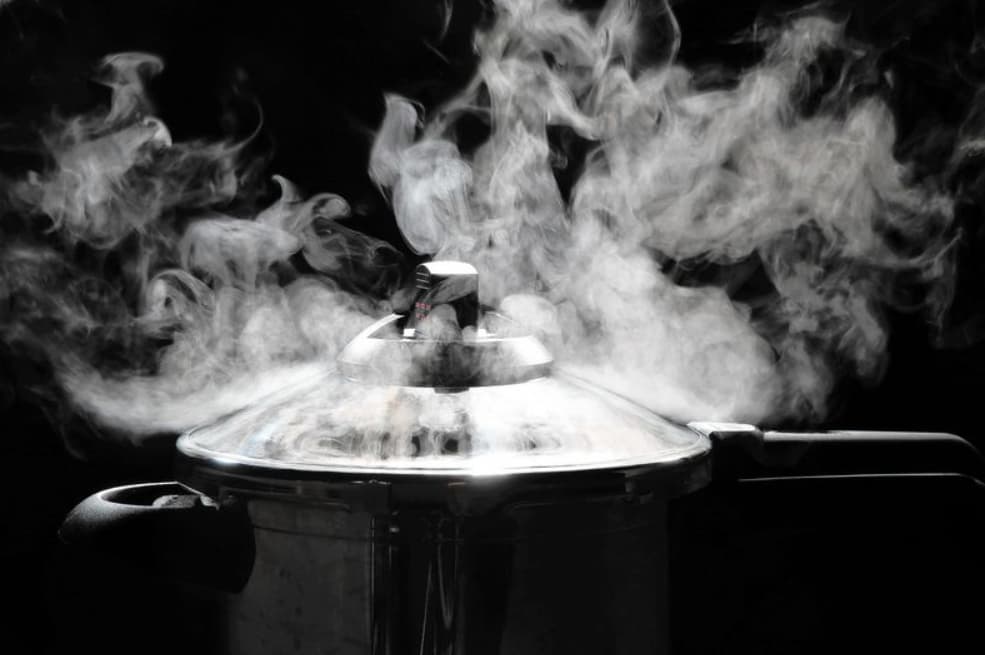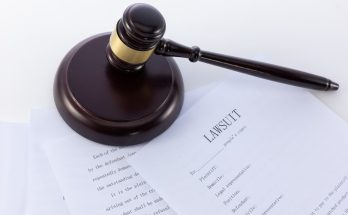Pressure cookers have evolved into essential kitchen tools, celebrated for their ability to accelerate cooking times while preserving flavors.
Nonetheless, despite their convenience, it is imperative to exercise caution and remain aware of potential hazards. A comprehensive understanding of the risks tied to pressure cookers becomes paramount in guaranteeing their safe and effective use in the kitchen.
According to food writer Catherine Phipps, the remarkable aspect distinguishing pressure cookers from other kitchen tools is their unparalleled versatility. She views them not merely as gadgets, but rather as saucepans with specialized lids.
As she explains in her book, “Modern Pressure Cooking,” pressure cookers can be employed for all the functions of a regular saucepan and offer even more capabilities, drastically reducing cooking time by 70-75%.
The Dangers of Pressure Cookers You Need to Be Cautious About

In this article, we delve into the dangers of pressure cookers that demand our attention.
The Danger of Pressure Cooker Explosions
Pressure cooker explosions can occur if the pressure inside the cooker is not released properly. This can happen if the cooker is not used properly or if it is defective.
According to TorHoerman Law, design flaws in pressure cookers can pose a serious risk, leading to potential device explosions that may cause severe injuries to people in the vicinity.
These defects are not limited to specific brands or types of pressure cookers. They can affect both electric pressure cookers and stovetop pressure cookers alike.
In recent years, there have been many cases of an exploding pressure cooker lawsuit filed against pressure cooker manufacturers. These lawsuits allege that the products were defective and caused explosions, leading to injuries and damages.
One of the recent cases of pressure cooker explosion, as reported in The Kansas City Star, involved Michelle Lieb, a resident of Nebraska. Lieb suffered severe burns while using her pressure cooker when she attempted to open the lid.
Consequently, she is now pursuing legal action against SharkNinja, the manufacturer of her Ninja electric pressure cooker, in federal court.
The lawsuit alleges that defects in the cooking appliance made it easy for her to open the lid while the pressure inside remained dangerously high.
As a result, the scalding contents of the Ninja Cooker forcefully exploded, causing burns and scarring on her abdomen, arm, and wrist.
If you have been injured by a pressure cooker explosion, you may be entitled to compensation. It is important to speak with an attorney to discuss your legal options.
Burn Hazard of Pressure Cookers
Pressure cookers work by trapping steam inside the cooker, which raises the boiling point of water and allows food to cook more quickly.
However, if the pressure inside the cooker is not released properly, the steam or hot liquid can escape and cause burns.
Several things can cause pressure cooker burns, including:
- Overfilling the pressure cooker: Overfilling the pressure cooker can increase the pressure inside the cooker and make it more likely that the steam or hot liquid will escape.
- Not using a pressure regulator: A pressure regulator helps to control the pressure inside the pressure cooker and reduces the risk of an explosion. If you do not use a pressure regulator, the pressure inside the cooker can build up too high and cause an explosion.
- Not releasing the pressure properly: When you are finished cooking, it is important to release the pressure in the pressure cooker slowly. If you release the pressure too quickly, the steam or hot liquid may escape and cause burns.
According to Gear Patrol, releasing pressure from an overly filled pressure cooker can lead to dramatic spillovers. This can also cause food particles to escape through the steam vent, resulting in clogs.
To prevent such incidents, it’s advisable to follow a rule of thumb: fill the pot to a maximum of half its capacity for ingredients that produce foam, and for all other ingredients, two-thirds of capacity. This ensures a safer and more efficient cooking experience with the pressure cooker.
Electrical Shocks From Pressure Cookers
Pressure cookers are typically powered by electricity. If a pressure cooker is not properly grounded, it can create an electrical hazard.
This is because the metal parts of the pressure cooker can come into contact with live wires, which can cause an electrical shock.
According to ConsumerNotice.org, the Instant Pot, manufactured by Double Insight, faced recall incidents in 2015 and 2018 due to safety concerns. In 2015, approximately 1,000 multicookers were recalled due to the risk of electric shock.
Furthermore, in 2018, about 104,000 multicookers were recalled due to a fire hazard.
To prevent electrical shocks from pressure cookers, you need to ensure the pressure cooker is properly grounded. This means that the metal parts of the pressure cooker must be connected to a ground wire connected to the earth.
If you are unsure whether your pressure cooker is properly grounded, contact a qualified electrician.
In addition to making sure that the pressure cooker is properly grounded, there are several other things you can do to prevent electrical shocks.
These include:
- Never use a pressure cooker that is damaged or has loose wires.
- Always unplug the pressure cooker when you are not using it.
- Never use the pressure cooker in a wet environment.
- Be careful not to touch the pressure cooker’s metal parts when it is plugged in.
By following these simple safety tips, you can help to prevent electrical shocks from pressure cookers.
Bacteria Growth in Pressure Cooker Cooking
Pressure cookers can create an ideal environment for bacteria growth if they are not cleaned properly. This is because pressure cookers cook food at high temperatures, which can kill some bacteria.
However, not all bacteria are killed by high temperatures, and some bacteria can even thrive in the high-pressure environment of a pressure cooker.
If a pressure cooker is not cleaned properly, bacteria can build up on the surface of the cooker. This bacteria can then be transferred to food that is cooked in the pressure cooker, leading to food poisoning.
Food poisoning can cause a variety of symptoms, including nausea, vomiting, diarrhea, and fever. In some cases, food poisoning can be fatal.
To prevent bacteria growth in a pressure cooker, you need to clean it properly after each use. The pressure cooker should be disassembled and all parts should be washed with hot, soapy water. The pressure cooker should also be rinsed with clean water and dried thoroughly.
More Lawsuits, You Must Know About:
- Ramsey Standage V Abbott Settlement
- LifeWave Lawsuit
- Zyn Lawsuit
- Evanger’s Dog and Cat Food Lawsuit Settlement
- Rachel Ray Nutrish Lawsuit
Conclusion:
Pressure cookers have become indispensable kitchen appliances, praised for their ability to expedite cooking times and retain flavors.
However, amidst the convenience they offer, potential dangers demand caution and awareness.
By exploring these potential risks and offering safety guidelines, we aim to empower readers with the knowledge needed to mitigate hazards and confidently embrace the advantages of pressure cooking.
Thus, safeguarding their well-being and that of their loved ones.



